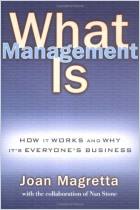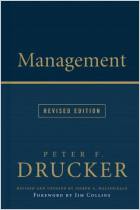Join getAbstract to access the summary!

Join getAbstract to access the summary!
Milo Sobel
The 12-Hour MBA Program
The Key Concepts and Techniques in a Fraction of the Time
FT Prentice Hall, 1993
What's inside?
Did you ever think you could learn enough for an MBA in one book? Well, you can’t, but this gives it an earnest shot.
Recommendation
In The 12-Hour MBA Program, Milo Sobel presents an overview of the major topics graduate students learn in pursuit of a master’s degree in business administration. He offers chapters on marketing and product management, accounting and finance, human resources and operations management, statistics, economics, technology management, business policy and ethics, strategic planning, education and career planning. This good, solidly written introduction to the field will probably be of most interest to college students and other beginners, who will benefit from this broad overview of different spheres of knowledge. However, managers and executives will find this too basic, more like a field of iceberg tips. The text is clearly written and well-organized, though it is primarily a summary, with a few examples and only occasional charts and tables. getAbstract.com recognizes what this basic book is trying to accomplish, but warns that - having been written in 1993 - it’s somewhat dated and lacks current thinking in such areas as marketing, management, leadership and strategy.
Summary
About the Author
Milo Sobel, a New York City management educator and consultant, has offered his popular two and five-day "MBA in a Nutshell: 12-Hour MBA Program" since 1986. He is a faculty member of the New York Institute of Finance and former president of the New York chapter of the National Society for Performance and Instruction. He was Manager of Training for Citibank and earned his MBA from the City University of New York and his Ph.D. from Columbia University.


















Comment on this summary